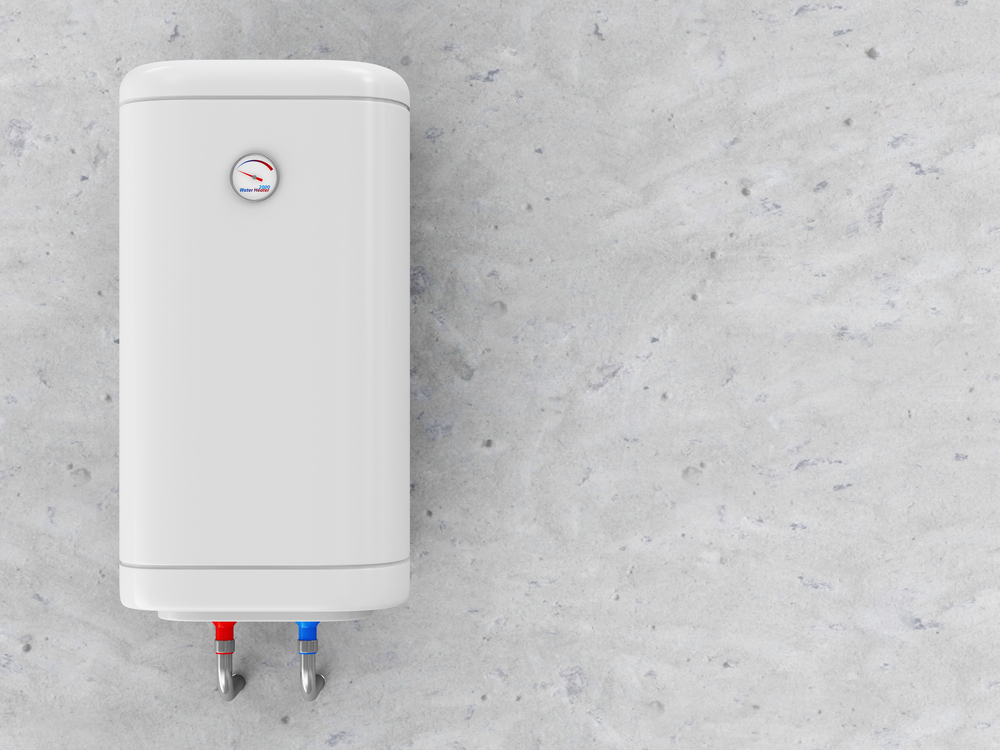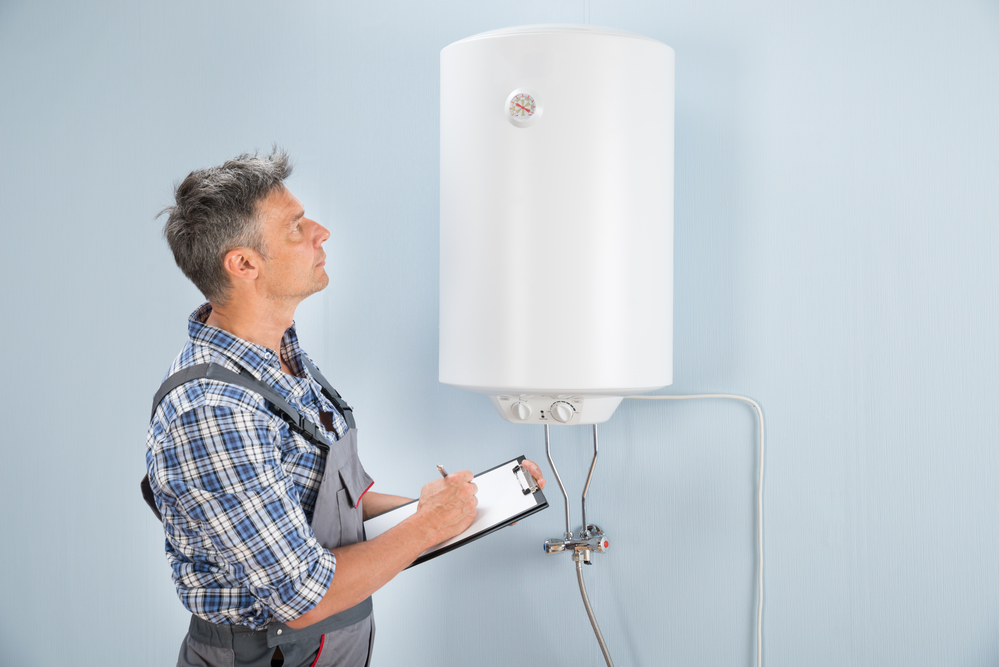Isn’t it blissful to get into the warm, cosy embrace of your home, away from the cold weather outside after a tiresome day? Your domestic boiler burbles away in the background to keep your home warm and comfortable.
But, don’t go into a frenzy if your boiler suddenly stops working and you start to feel the chill. Because, like other things, boilers also have a life span.
So, the big question is, when should you replace your boiler and how long does this process take?
Typically, it takes a few hours to 1-4 days to replace a boiler, depending on the extent of the damage and other factors. These include changing the type of boiler, its position, or the fuel type of the boiler.
Let’s discuss different scenarios when you might need to replace your boiler and the time it takes to fit a new one or shift it to a new place in the house.
How Long Does a Domestic Boiler Last?

A boiler’s average lifespan is between 10 to 15 years, but it also depends on your model. If it’s a modern boiler, it can even last up to 20 years.
It might even last longer if you take care of your boiler (like it takes care of you). Proper maintenance is key to preventing damage and ensuring a longer lifetime for your boiler.
Boilers need annual maintenance by professional technicians, or else their life span can even become half. Corrosion is a major problem that can arise due to the lack of maintenance.
Another factor that can increase the longevity of your boiler is prompt repairs whenever required. Delaying or waiting for the boiler to malfunction will cause it to wear down faster.
A boiler’s life expectancy also depends on its type. Electric boilers have shorter lifespans than gas boilers. Due to hard water, the heating elements start corroding, shortening their life span to 8 to 10 years.
High-efficiency condensing boilers, which are gas boilers, have a life of around 15 years because they use a second heat exchanger, which has exposure to combustion gas, corroding the metal parts. However, if maintained properly, they can last a little longer until you notice signs of replacement. T
How Often Should You Change Your Boiler?
A boiler replacement depends on various factors and needs a proper assessment of the time and effort required (cannot be a frequent process). As a homeowner, you might consider changing it if it is older than 15 years old or shows declining health. The best thing to do is to make periodic checks on the condition of the boiler to make a decision.
If you notice any apparent signs of damage or leakage even before it stops working, you must opt for replacement without second thoughts. Moreover, if you are planning to shift the position of your boiler for any reason, check whether it is okay to be used (for an extended period) or if you need a new one.
Signs That Your Boiler Needs A Replacement
Leakage
Leaks can be due to corrosion, faulty pipe fitting or boiler pressure vault, temperature valve issues, etc. You might notice water or steam leaking from the boiler.
Bad Odour and Strange Noises
If you notice a sulfur-based smell or any other obnoxious odour, it can be due to gas leakage or sediment deposition on the inner surface. Similarly, weird noises can also be a cause of concern.
Lower Efficiency
Higher electricity bills and lower effective heating leading to a reduced comfort level in your house are indications that your boiler needs maintenance or replacement. It might also mean that you need an advanced housing system.
Check the ErP (Energy Related Products Directive) label on your boiler. ErP indicates the efficiency of all energy-consuming goods between A++ and G, displayed clearly on the product’s label. For example, 92% efficiency is equivalent to an ‘A’ rating.
The most efficient types of boilers in the market are condensing boilers because modern heat exchangers are used. Hence, you might want to choose this type of boiler to improve overall efficiency with the bonus you’ll produce less CO2!
Keeping a check on the efficiency should be at the top of your list because you wouldn’t want to pay more and not get the desirable heating, especially during the chilly winters. So, getting the boiler serviced before the extreme weather conditions set in is better.
Frequent breakdown
If your boiler isn’t working most of the time, it can be due to a loose-fitting issue or water supply damage. If the breakdown happens too often, it can also mean that you have a faulty part that needs replacement. If this occurs for a newly installed boiler, you should get back to the service provider or the seller.
Colour of the Flames
A yellow flame means carbon monoxide is emitted into your home. This can be dangerous, leading to many health hazards. The flame should ideally be blue; else, there is a problem.
Water temperature fluctuations
Try using the water fixtures like taps, showers, or baths, to notice fluctuations in temperature. It will indicate if it is the time to have your boiler re-pressurised. If it fails to work, then you might need a replacement.
How To Take Care Of Your Boiler?
Domestic boilers are extensively used, sometimes throughout the day. As a homeowner, you must maintain it properly to prevent damage or frequent breakdowns. Otherwise, it can be a constant cause of worry and a load on your pocket.
Ways to Prevent Boiler Failure
Here are a few things you need to take care of that can wreck your boiler.
Proper Fitment- While installing, check if the boiler manufacturer and model specifications are met during the system engineering at your place. Any discrepancies can lower the performance of the boiler.
Annual Servicing- An overall service every 12 months is enough to find the loopholes that can lead to damage and to do timely repairs.
Periodic Cleaning- Boilers collect dust and need to be cleaned occasionally. Many say they can do it themselves, but it can be dangerous if you are not an expert. It is better to call a designated engineer for the job.
It would be best to keep the surrounding area clutter-free to ensure it is not infested with rodents.
Checking Radiators- Keeping the radiators prim and proper is important for your boiler’s efficiency. It can be a simple task of bleeding the radiators, or they might need power flushing.
Bleeding the radiator is a simple task where you can just open the valve to let out the trapped air. Moreover, restricting wastewater in the kitchen and bathrooms also increases energy efficiency.
Powerflushing is a deep cleaning for the radiators and central heating system to flush out all the rust and debris hindering its smooth functioning.
Monitoring pressure- Your boiler needs the right pressure to work efficiently. Over time, it might lose pressure, which you will need to keep checking. If you notice a decrease in the level, you can top it up. You can check the manual for the process or call a plumber.
If your boiler just gives up even after proper maintenance or has aged beyond its lifetime, it is time for a replacement. Let’s take a quick look at the time durations for replacing or fitting a new boiler, depending on various situations.

Duration For Replacing A Boiler
| Types of Replacement Work | Duration |
| Simple swapping of boiler (at the same location) | 4 to 6 hours |
| Changing the type of boiler | 1 to 2 days |
| Changing the place of the boiler | 1 to 2 days |
| Changing both the type and position of the boiler | 3 to 4 days |
| Changing the fuel type of the boiler | 1 to 2 days |
| Installation of a new boiler | 1 to 2 days |
Let’s understand why the duration varies and the work that goes into it.
Boiler swap: A simple swapping of the old boiler with a new one shouldn’t take more than 4 to 6 hours. It would mean fitting in a new boiler of the same make/model in place of the old one.
Since the position remains the same and the water pipes are already in place, it is a quick job for an expert to get your boiler up and running within a few hours.
Opting for a new type of boiler: Each type of boiler – combi, conventional, and system – has its own specifications. If you want to replace the type of boiler, for example, you want a combi instead of a conventional one, then the entire system needs to be replaced.
The biggest challenge arises when upgrading from a combi to a conventional or a system boiler because you need an extra cylinder or an expansion tank, depending on your choice. It takes more effort and is time-consuming.
On the other hand, shifting from a conventional system to a combi boiler requires more time due to the removal of the extra cylinders, tanks, and pipeworks. A boiler expert can suggest the optimum solution at a minimum cost.
Moving the boiler to a new position: Changing the position of your boiler is a big task because it requires a lot of structural and electrical changes. It needs the installation of new water and gas pipes along with thermostat cables. You also need to consider the time for the dismantling and removal of the old boiler.
Changing both the position and type of the boiler: Changing both the position and type of boiler takes the most time. It involves the removal of the old boiler and properly sealing the area. Then, new brackets, pipelines, cables, and the entire setup need to be installed at the new position.
You might also want to get an assessment done first to check whether the new position or the new boiler system is feasible for better results.
Changing the fuel type: If you plan to change the fuel type, it needs extra plumbing and electrical work, which might take up to 3 days.
Summary
Your boiler might need replacement due to excessive wear and tear, faulty parts, or exceeding its life expectancy. You must check for signs of damage or decreased efficiency, and then decide on repair or replacement.
It is advisable to get the assessment done by local experts on the required duration. Because it can take a few hours to even 4 days based on the work to be done. It also decides the labour cost and the number of engineers required for the job.
Based on that, you can make temporary arrangements if it will take longer than a day.
